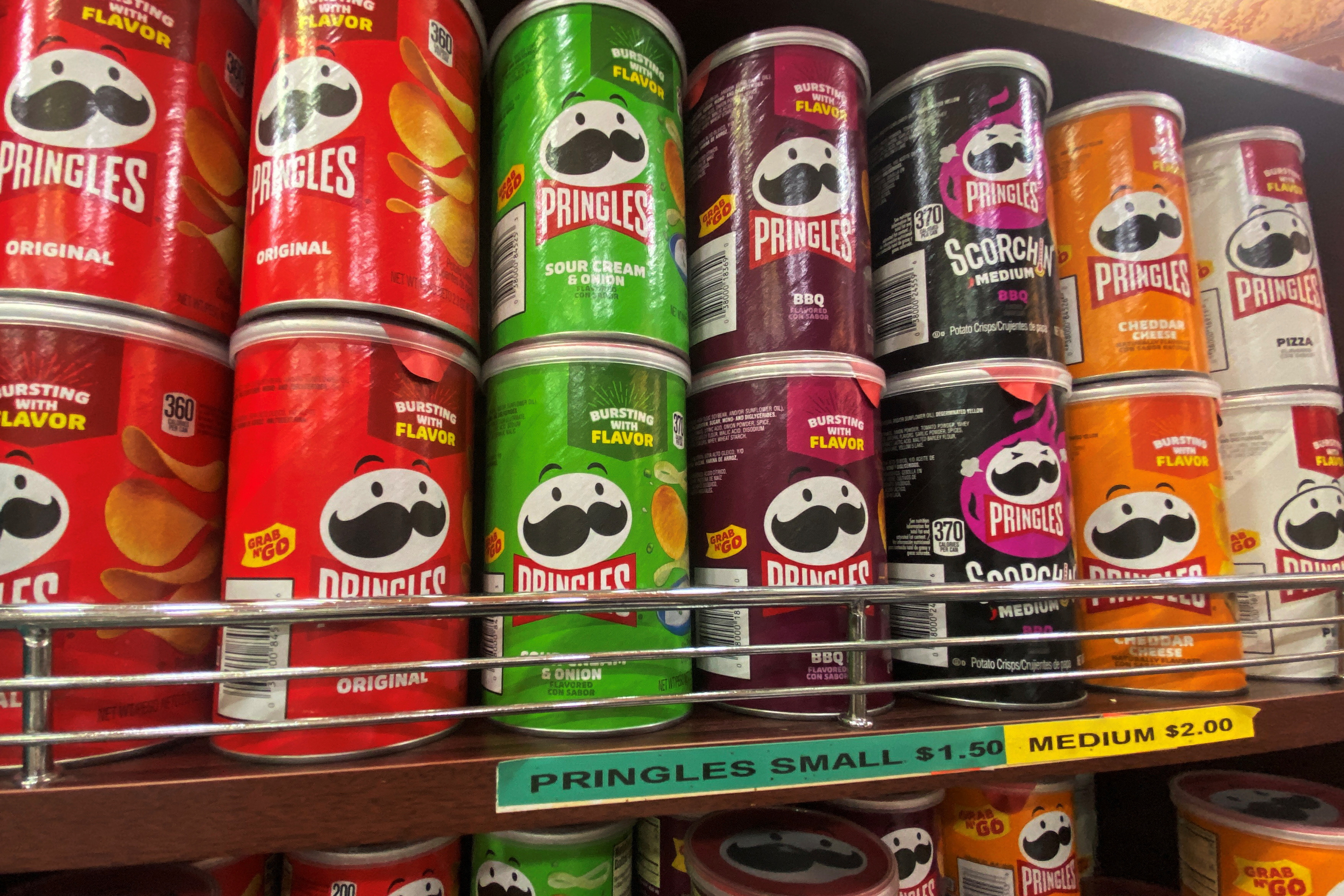By Anirban Sen, Savyata Mishra and Jessica DiNapoli
(Reuters) -Household-owned sweet big Mars is shopping for Cheez-It maker Kellanova in an almost $36 billion deal, bringing collectively manufacturers from M&M’s and Snickers to Pringles and Pop-Tarts within the 12 months’s largest deal to this point.
Mars mentioned on Wednesday it’s going to pay $83.50 per share for Kellanova, representing a couple of 33% premium to its closing value on Aug. 2 earlier than Reuters first reported that Mars was exploring a deal for the for the maker of frozen breakfast meals, equivalent to Morningstar Farms and Eggo.
The deal is a guess on shoppers persevering with to bask in branded snacks, and comes as packaged meals firms face stalling progress after years of value hikes to cowl sky-rocketing inflation.
The mixed firm goals to carry costs regular, mentioned Mars CEO Poul Weihrauch in an interview with Reuters Wednesday, and never cross on prices from the deal to shoppers.
“We are a big and stronger company,” Weihrauch mentioned. “We hope to be able to absorb more costs in our structure and help alleviate the issues we have in an inflationary environment.”
Meals costs in the US elevated roughly 25% from 2019 by 2023, way over different classes equivalent to housing and medical care, based on information from the U.S. Division of Agriculture. However inflation has began to average, based on the U.S. shopper value index information launched Wednesday.
Customers in the US and Europe – main markets for each firms – have been searching for cheaper alternate options or ditching manufacturers for cheaper non-public label items.
Kellanova has seen non-public label encroach on its market share for cereal in Europe and different areas, mentioned CEO Steve Cahillane. The corporate sells candy cereals equivalent to Smacks, Frosties and Coco Pops in Europe, based on securities filings.
The U.S. packaged meals sector is seeing sturdy dealmaking as firms search scale to climate the influence of inflation-weary shoppers slicing again and shifting their purchases to personal label manufacturers.
Buyers are additionally nervous a couple of decline in gross sales from the higher adoption of medicine equivalent to Ozempic and Wegovy for weight reduction, which curb appetites and result in emotions of fullness.
Weihrauch mentioned half of the corporate’s portfolio will probably be “wholesome” snacks equivalent to low-calorie Particular Ok, Type bars and Nutri-grain.
In contrast to competitor Nestle, Mars has no plans at the moment to develop new merchandise particularly for folks utilizing the weight-loss medication, Weihrauch mentioned.
Mars mentioned it plans bolster its snacking division, make investments domestically and introduce extra wholesome choices by the deal, because the class is “attractive and durable.”
The corporate has a 4.54% share of the U.S. snacking market, whereas Kellanova holds about 3.9%, based on information from GlobalData, nicely behind market chief PepsiCo (NASDAQ:).
Kellanova sells noodles in Africa, although the enterprise has confronted hurdles because of the continent’s financial struggles.
Cahillane mentioned Kellanova’s distribution community in Africa provides Mars a chance to take its sweet to the continent. Mars’ presence in China provides an “enormous” alternative for Pringles, Cahillane mentioned.
The acquisition, which dwarfs Mars’ $23-billion takeover of Wrigley in 2008, can also be not anticipated to face too many antitrust roadblocks because of the restricted overlap within the choices of the 2 firms, authorized consultants had informed Reuters.
After the completion of the deal within the first half of 2025, Kellanova will turn out to be part of Mars Snacking, led by International President Andrew Clarke, the businesses mentioned. Will probably be primarily based in Chicago. Cahillane, a veteran of the packaged meals and drinks trade who beforehand held positions at Coca-Cola (NYSE:), mentioned he can be leaving the mixed firm when the deal closes.
Shares of Kellanova rose about 8% to $80.25 in early commerce. On an fairness foundation, the corporate is valued at $28.58 billion, based on a Reuters calculation.
Kellanova, which cut up from WK Kellogg (NYSE:) final October, is rooted in a salty snacks enterprise and sells cereal exterior of North America. WK Kellogg was left with the North American cereal enterprise of Kellogg, the unique guardian firm.
“It’s now clear why Kellanova went through the spin-off of its slow-growing domestic cereal business last year. We may see more packaged food companies divest or spin off slower-growing segments of their portfolios to attract new buyers,” CFRA Analysis’s Arun Sundaram mentioned.
Reuters reported in Might that funding agency TOMS Capital Funding Administration had taken a “significant” stake in Kellanova and was in talks with the corporate to enhance shareholder returns.

Underneath the phrases of the deal, Mars should pay a termination price of $1.25 billion in case of failure to acquire regulatory approvals, whereas Kellanova should pay $800 million to Mars in case of a change in board suggestion.
Mars intends to finance the deal by money and new debt. Citi is its monetary adviser, whereas Goldman Sachs is advising Kellanova.




